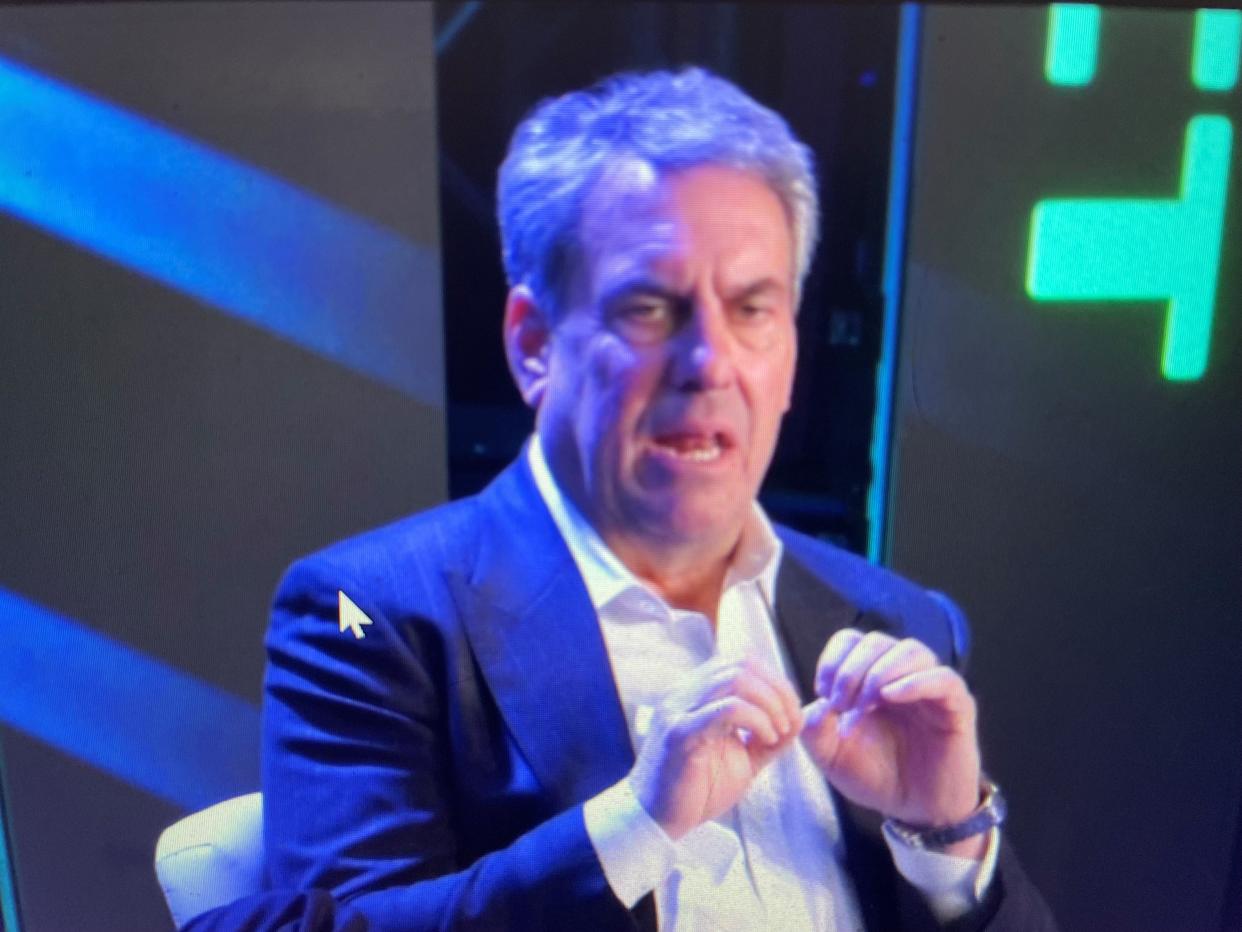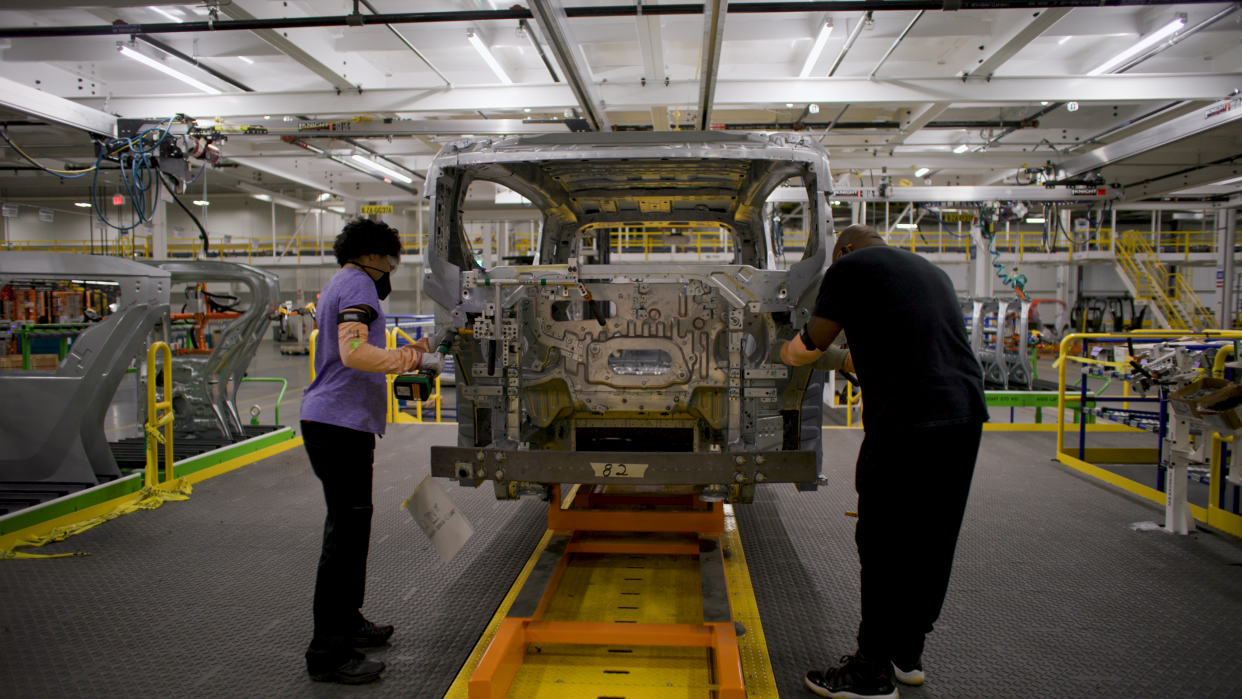GM plans to put totally driverless Cruise vehicles back on U.S. roads: Here's how
General Motors President Mark Reuss said Thursday that GM plans for its self-driving subsidiary Cruise to get back on U.S. roads in the next year or two but said it might take longer to win back the trust of the public.
Cruise had been operating a driverless robo-taxi service in California and other states, using modified Chevrolet Bolt electric vehicles, when it had to halt U.S. operations and recall those vehicles following an October 2023 incident in California in which a robo-taxi struck and dragged a pedestrian 20 feet, leaving her critically injured. The incident is under multiple investigations.
On Thursday, Reuss spoke about Cruise at the J.D. Power Auto Summit in Las Vegas, ahead of the National Auto Dealers Association convention, to a crowd of mostly car dealers. In a video of the event provided to the Detroit Free Press by J.D. Power, Reuss said it will likely take Cruise four to five years to earn back the trust of the public.
As the Detroit Free Press reported last week, the U.S. Department of Justice and the Securities and Exchange Commission opened investigations into Cruise following the October incident in California.
A request to the DOJ for comment on the status of its investigation Friday was not immediately answered.
SEC spokesman Cory Jarvis said in an email to the Detroit Free Press, "The SEC does not comment on the existence or nonexistence of a possible investigation."
'We had some problems'
As the Detroit Free Press reported in the fall, Cruise managers omitted key details to regulators about the California incident. The omissions led to allegations of Cruise deliberately misleading authorities, which could result in hefty fines. In January, for example, Cruise offered to pay $75,000 to state regulators to resolve an investigation, as the Detroit Free Press reported.
"We had some problems with transparency and the way we dealt with a very serious situation," Reuss said Thursday at the J.D. Power Auto Summit.

Reuss said GM and Cruise will, "work very hard to get the trust back, not only of the regulators ... but also, most importantly, our customers. ... There will be things that happen and it’s our job to make sure that people understand why it happened, what happens. ... It has to be far better than what perhaps was being looked at prior, from a trust, from an execution. And so we’re committed."
GM's plan for Cruise
GM CFO Paul Jacobson said Tuesday GM will reduce its spending on Cruise this year by about $1 billion after Cruise widened its losses in 2023. GM said Cruise lost $2.7 billion in 2023 compared with a loss of $1.9 billion in 2022.
But Reuss said Thursday GM remains committed to developing Cruise's technology and fixing the company.
"In the next four to five years, you’ll see, hopefully, we regain that trust. We continue on the technical progress for that," Reuss said. "I’d say in the next one to two years, we return back to the roads with great products and great delivery for both the taxi piece of it, but also delivering goods to people that can't, don’t have mobility perhaps or for companies that need an autonomous delivery system. So we’ll do that. And I think we’re capable of doing it.”
GM has owned Cruise since 2016 and Cruise was operating its robo-taxi fleets in San Francisco, Austin, Texas, and Phoenix until it stopped all operations and recalled its fleet of 950 modified Bolts in November after the incident.
A different way to deploy
A report on the October incident involving the Cruise in California was prepared by the law firm of Quinn Emanuel Urquhart & Sullivan and made public on Jan. 26. It rebuked Cruise's management that has since been let go, according to the report, for “poor leadership, mistakes in judgment, lack of coordination, an ‘us versus them’ mentality with regulators.”
But Reuss said GM will execute a new process for how it relaunches Cruise cars onto roads and in new markets.
"The way we do it will be very different and the markets we expand (to) because we’ll have very deep learning and deep technical stacks in the places where we deploy," Reuss said. "And so that’s the plan. And the rapid deployment and spreading will be gated only by how good we are in that market, how safe we are and how we're trusted.”
On Friday, GM spokesman Pat Morrissey clarified that Cruise plans to have its modified Bolt autonomous vehicles back on U.S. roads sooner than one to two years but in the year or two time frame, the Origin, a small bus-like vehicle that will transport up to six people without a driver and being built at Factory Zero in Detroit and Hamtramck, will replace the Bolt.

In November, the Detroit Free Press reported GM paused production of the Cruise Origin at Factory Zero. Production on the Origin will not resume in 2024, Morrissey said.
"We have not set a timeline for deployment," said Morrissey of putting the modified Bolts back on roads. "Our goal is to relaunch in one city with supervised driving with Bolt-based Cruise AVs (autonomous vehicles) as soon as possible once we have taken steps to rebuild trust with regulators and the public."
In a blog on www.getcruise.com posted last month, Cruise said it is committed to increased transparency and, "We are fully cooperating with the state and federal regulatory and enforcement agencies which have opened investigations or inquiries in connection with the incident, including the California DMV, the California Public Utilities Commission, the National Highway Traffic Safety Administration, the U.S. Department of Justice, and the U.S. Securities and Exchange Commission."
More: General Motors to bring back hybrid vehicles in North America, stay focused on EVs
More: GM's high-level meetings with railroads to get new cars to market faster
Content in this story was further edited after publishing.
Contact Jamie L. LaReau: jlareau@freepress.com. Follow her on Twitter @jlareauan. Read more on General Motors and sign up for our autos newsletter. Become a subscriber.
This article originally appeared on Detroit Free Press: GM's Reuss: Driverless Cruise vehicles will go back on US roads
